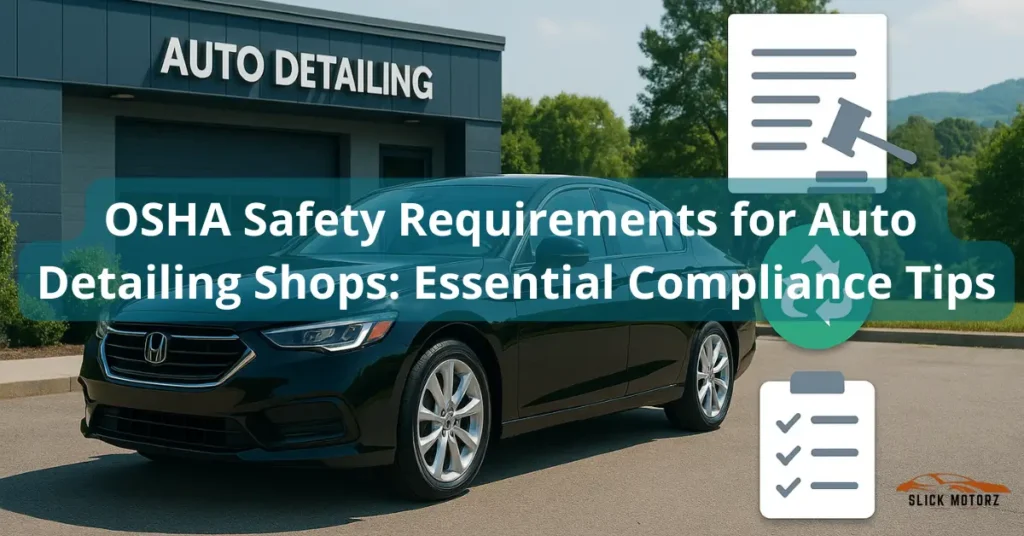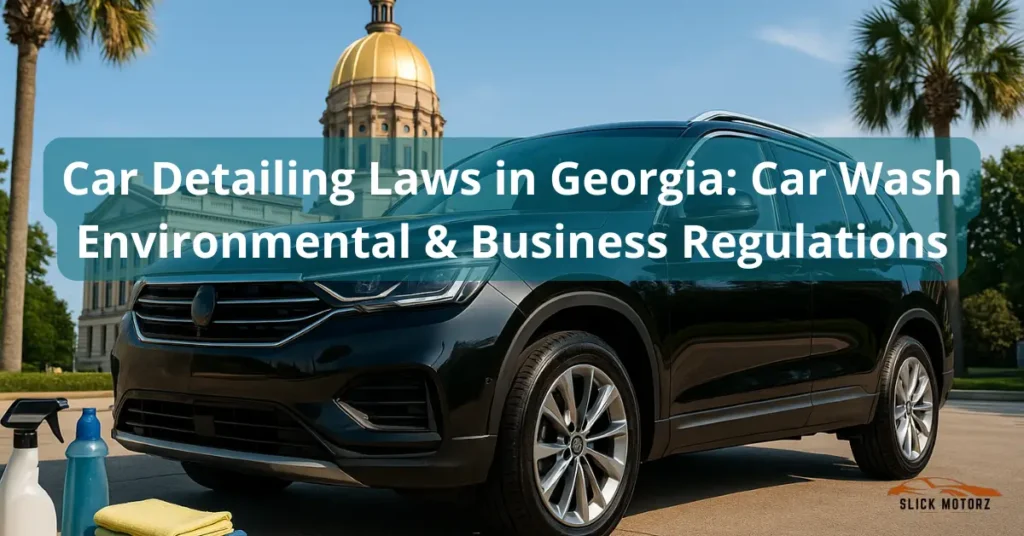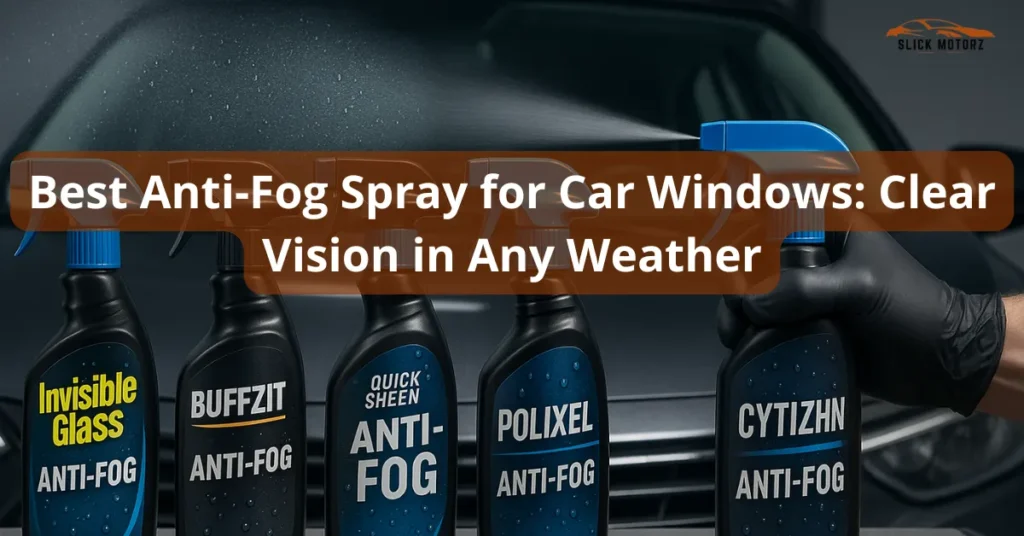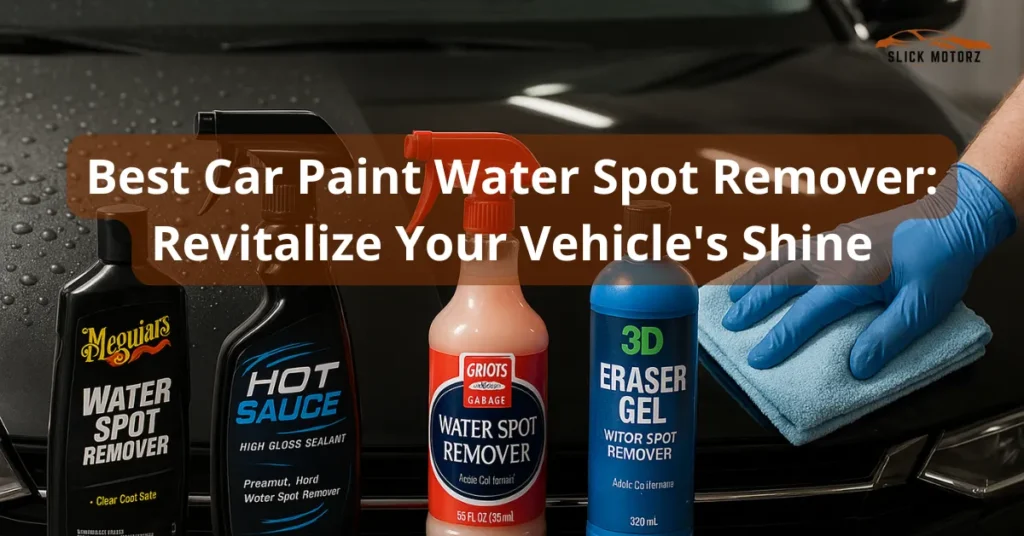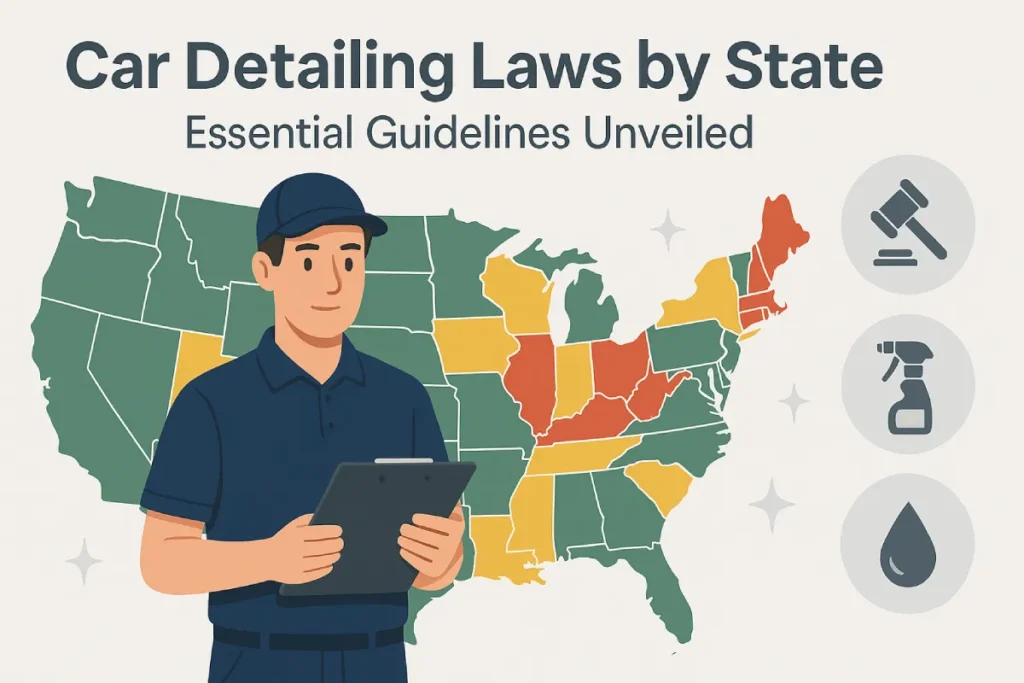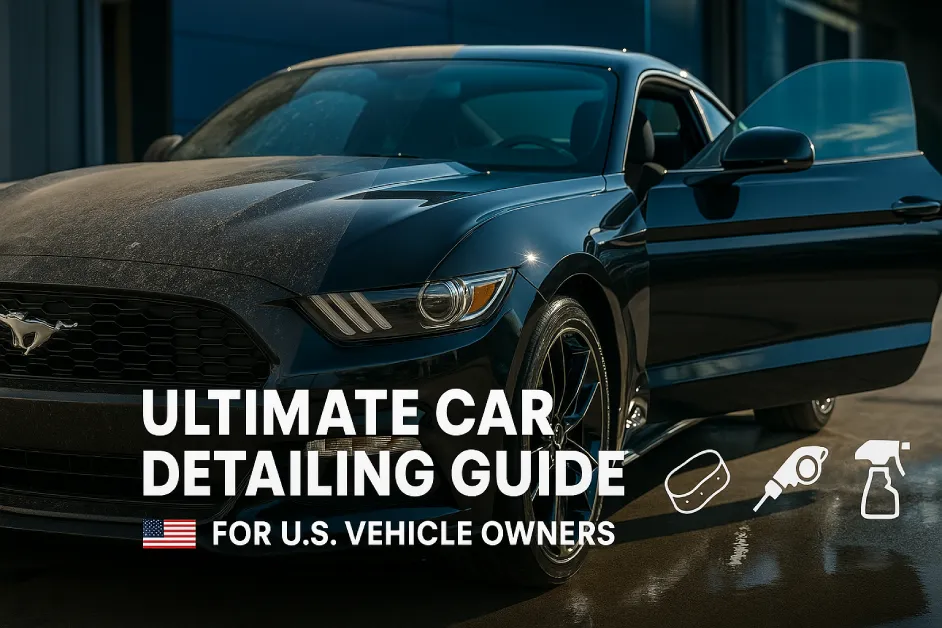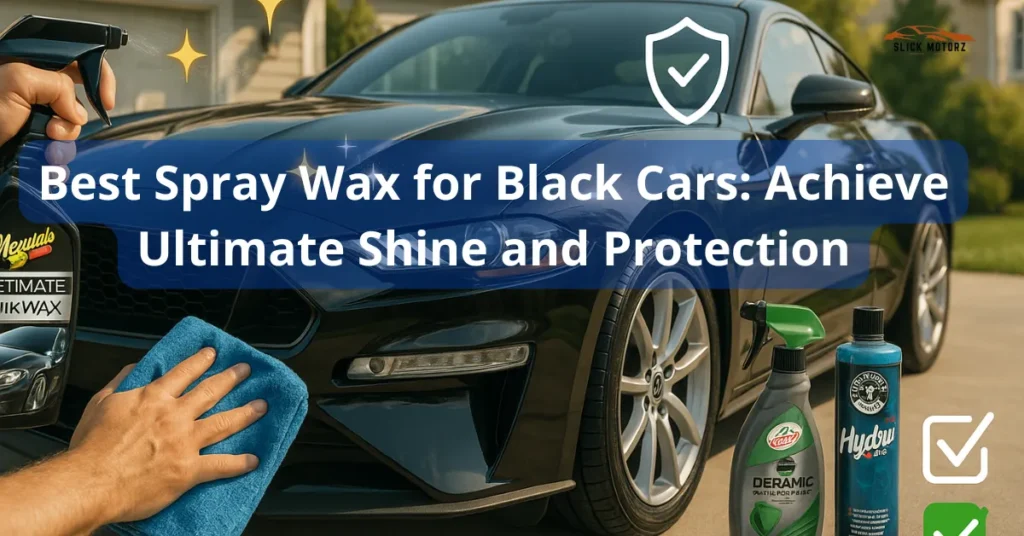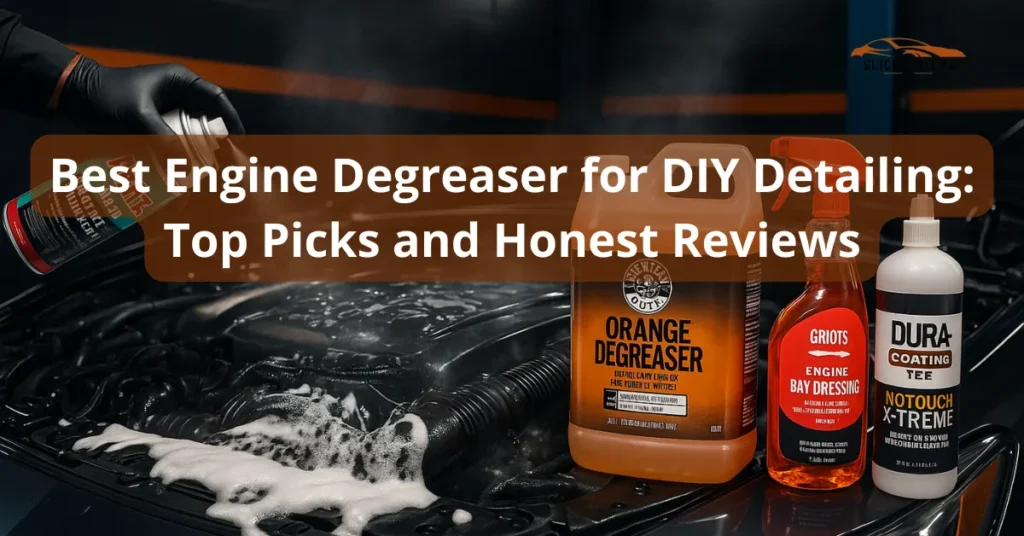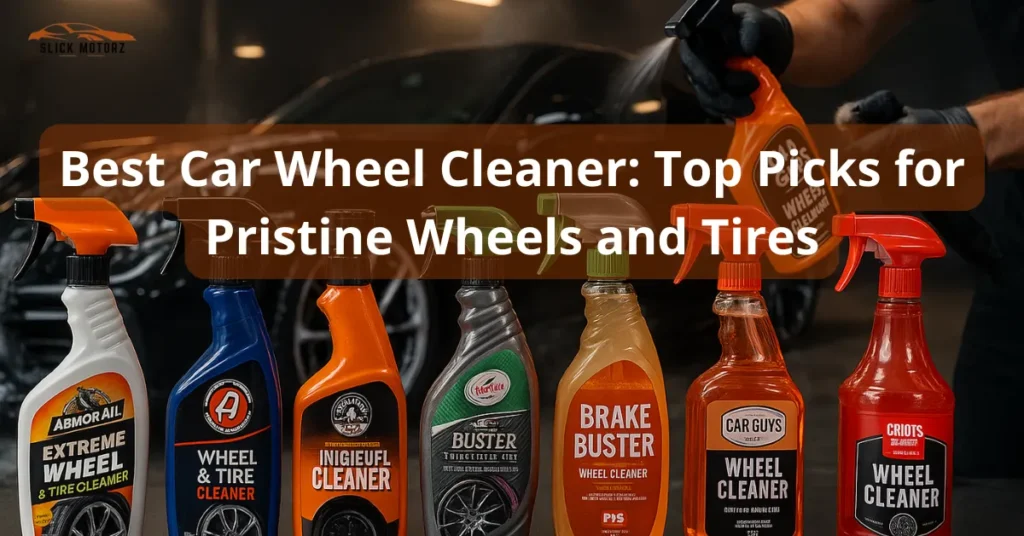If you’re running a car detailing business, knowing EPA regulations isn’t just a good idea—it’s essential. These rules protect the environment and your business from costly fines or shutdowns.
But with so many laws about air quality, waste disposal, and chemical use, it can be overwhelming to figure out exactly what applies to you. This guide breaks down the key EPA regulations every car detailer must know, using clear, simple language so you can stay compliant and focus on delivering top-notch service.
Continue reading to learn how to protect your business and the environment while refining your craft.
EPA Rules For Car Detailers
Car detailers must follow EPA rules to protect the environment and public health. These rules cover waste disposal, chemical use, and water runoff. Understanding these regulations helps you avoid fines and ensures your business remains compliant with the law. Compliance also shows customers you care about safety and the environment.
Business Licensing Requirements
Every car detailing business needs a proper license to operate legally. This license depends on your city or state laws. It proves your business meets local safety and environmental standards. Without a license, you risk fines or closure. Check with local offices before starting your business.
Permits And Registrations
Permits may be required to handle chemicals and wastewater. These permits control how you store and dispose of hazardous materials. Registering with the EPA or local agencies may also be necessary. This keeps your business compliant with federal and state laws. Always renew permits on time to avoid penalties.
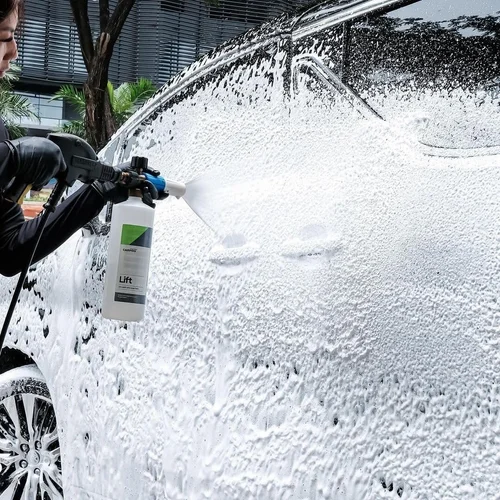
Credit: www.fresh-layer.com
Air Quality Standards
Air quality standards play a critical role in car detailing businesses. These standards help reduce harmful air pollution. The EPA sets rules that detailers must follow to protect the environment and public health. Understanding these rules ensures your business stays legal and safe.
Emissions From Equipment
Car detailing uses various machines and tools. These machines can release pollutants into the air. The EPA limits emissions from engines and compressors used in detailing. Using low-emission equipment helps meet these standards. Regular maintenance reduces harmful exhaust and keeps equipment efficient.
Volatile Organic Compounds (VOCs)
Many cleaning products contain VOCs. These compounds evaporate quickly and pollute the air. The EPA restricts the amount of VOCs allowed in detailer products. Choosing low-VOC or VOC-free products helps comply with these rules. Proper storage and disposal of chemicals reduces VOC emissions further.
Water Protection Measures
Protecting water sources is vital for every car detailer. Water protection measures help stop pollution from entering lakes, rivers, and groundwater. Car detailing involves water and chemicals that can harm the environment. Following EPA rules ensures these substances do not contaminate water.
Water protection reduces risks to wildlife and human health. It also keeps your business compliant with laws and avoids fines. Understanding these rules helps detailers manage wastewater and prevent runoff pollution effectively.
Wastewater Disposal Rules
Wastewater from car detailing contains soap, oils, and dirt. The EPA requires proper disposal to prevent pollution. Detailers must not dump wastewater into storm drains or streets. These drains often lead directly to natural water bodies without treatment.
Use a sanitary sewer system or an approved disposal site for wastewater. Some areas require permits for water discharge. Check local regulations before disposing of any wastewater. Containing and filtering wastewater on-site reduces environmental impact.
Preventing Runoff Pollution
Runoff happens when rainwater carries dirt and chemicals into water sources. Car detailers must control runoff to protect water quality. Use barriers or mats to catch runoff during washing.
Choose eco-friendly cleaning products to reduce harmful chemicals. Avoid washing cars near storm drains or unpaved areas. Training staff on runoff prevention lowers the risk of accidental pollution.
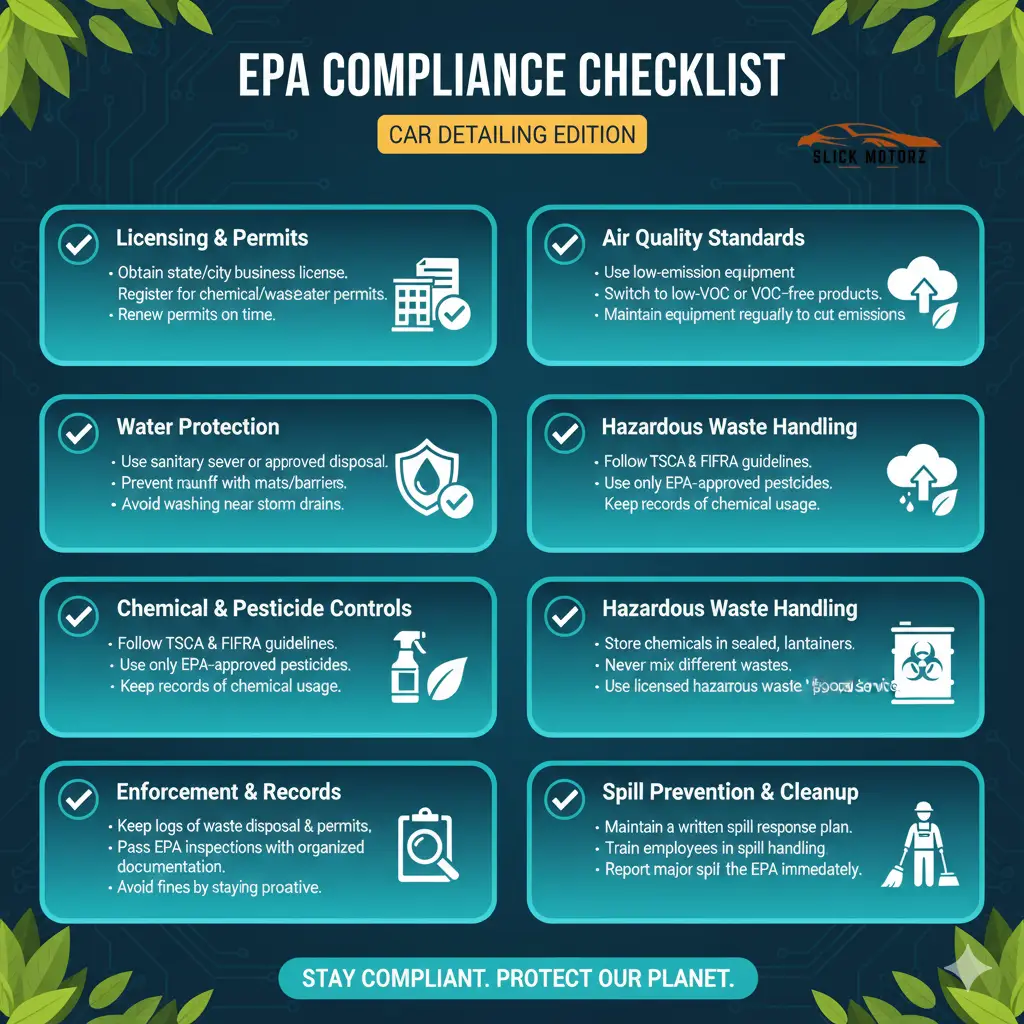
Hazardous Waste Handling
Handling hazardous waste is a critical responsibility for every car detailer. These wastes can harm people and the environment if not managed correctly. Following EPA rules ensures safety and legal compliance. Understanding what wastes qualify as hazardous and how to store and dispose of them properly is essential for all detailing businesses.
Types Of Hazardous Waste In Detail
Car detailing produces several types of hazardous waste. Common examples include used solvents, paint thinners, and cleaning chemicals. Oil and antifreeze from engine cleaning also count as hazardous. Wastewater containing detergents and heavy metals must be treated carefully. Identifying these wastes helps in handling them safely and legally.
Proper Storage And Disposal
Store hazardous waste in labeled, sealed containers. Keep these containers in a secure, ventilated area away from heat sources. Never mix different types of waste. Follow local and federal EPA guidelines for disposal methods. Use licensed hazardous waste disposal services. Document all storage and disposal actions to stay compliant with the law.
Chemical And Pesticide Controls
Car detailers use many chemicals and pesticides to clean and protect vehicles. These substances can harm health and the environment if not handled properly. The EPA sets rules to control their use and reduce risks. Understanding these rules is essential for every car detailer.
Safe Use Of Cleaning Chemicals
Always read product labels before use. Follow instructions exactly to avoid accidents. Wear protective gear like gloves and masks. Store chemicals in a cool, dry place away from children and pets. Dispose of leftover chemicals safely; never pour them down drains. Use only the amount needed to reduce waste and pollution.
Compliance With TSCA and FIFRA
The Toxic Substances Control Act (TSCA) controls chemical manufacturing and use. It requires reporting and limits harmful substances. The Federal Insecticide, Fungicide, and Rodenticide Act (FIFRA) regulates pesticides. Only EPA-approved pesticides can be used in car detailing. Keep records of chemicals and pesticides used. Ensure products have proper labeling and registration. Following TSCA and FIFRA protects health and avoids legal issues.
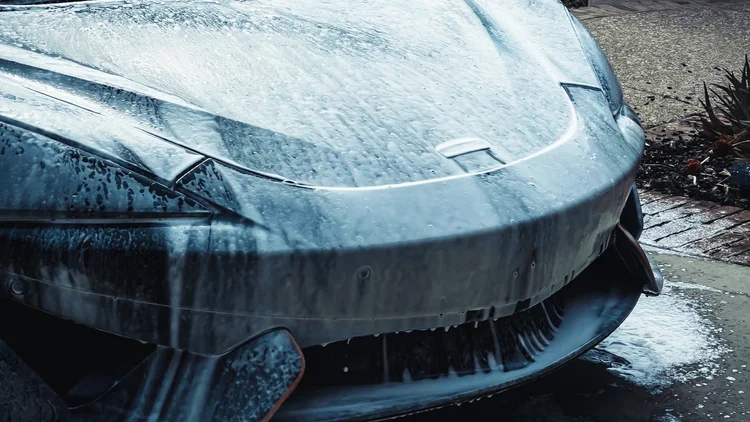
Credit: www.fresh-layer.com
Spill Prevention And Cleanup
Spill prevention and cleanup are crucial for every car detailer. Spills of chemicals, oils, or cleaning agents can harm the environment and violate EPA rules. Proper handling reduces risks to health and property. It also keeps your business compliant with the law.
Spill Response Plans
Every car detailer must have a spill response plan. This plan explains how to control and clean up spills quickly. It should include steps to stop the spill from spreading. Also, list the materials and tools needed for cleanup. Training employees on this plan is essential. A clear plan minimizes damage and shows your commitment to safety.
EPA Reporting Requirements
The EPA requires reporting certain spills immediately. Large spills or those involving hazardous materials must be reported to authorities. Reporting helps protect public health and the environment. Keep records of all spills and actions taken. Knowing when and how to report spills avoids fines and legal trouble. Always follow EPA guidelines closely for compliance.
Enforcement And Penalties
Enforcement and penalties are crucial parts of EPA regulations that car detailers must understand. The EPA monitors compliance closely. Violations can lead to serious consequences. These rules ensure businesses protect the environment and public health. Car detailers must follow all guidelines to avoid trouble.
Fines For Non-compliance
The EPA imposes fines on car detailers who break rules. Penalties can range from hundreds to thousands of dollars. The amount depends on the severity of the violation. Repeat offenses often lead to higher fines. Non-compliance can also damage a business’s reputation and operations.
Inspection Processes
The EPA conducts inspections to check if businesses follow rules. Inspectors may visit detailing shops without warning. They review records, waste disposal, and chemical usage. Finding violations can result in immediate penalties. Keeping thorough records and proper procedures helps pass inspections smoothly.
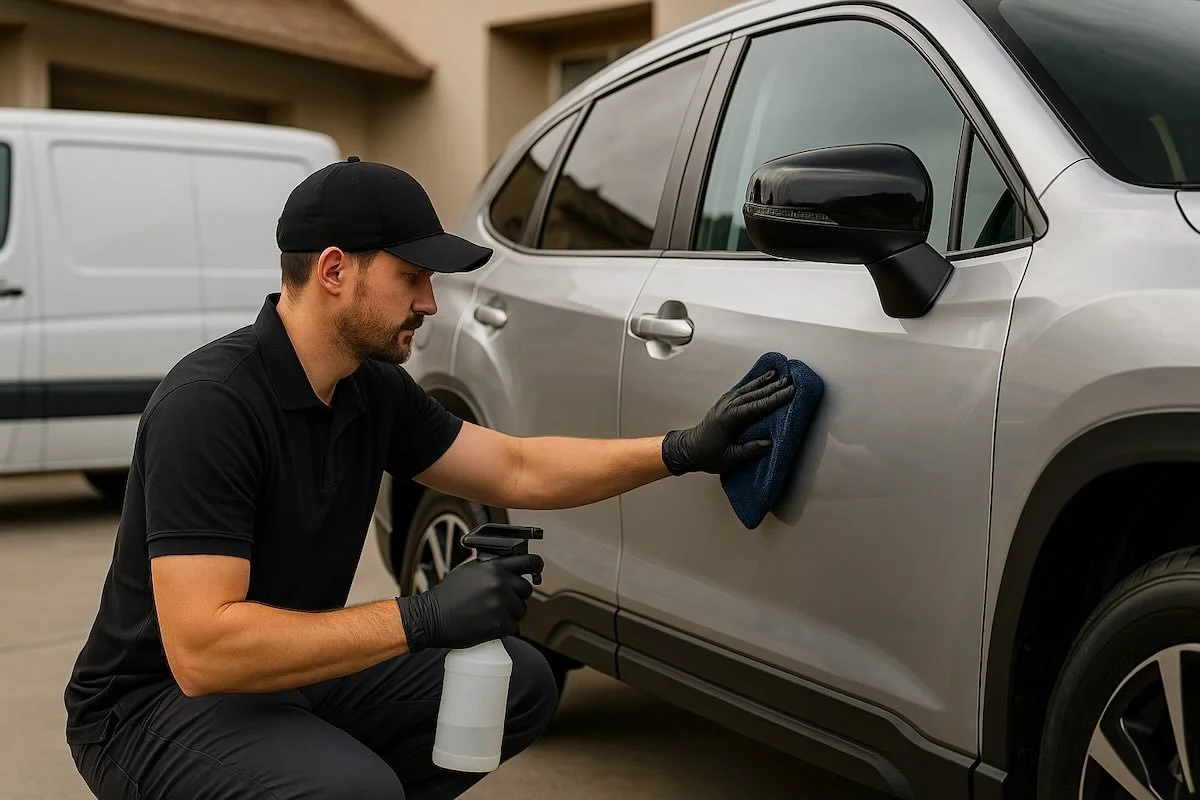
Credit: www.autolaundry.com
Sustainable Practices For Detailers
Car detailers play a big role in protecting the environment. Sustainable practices help reduce pollution and save resources. Following eco-friendly methods also meets EPA rules. These actions keep your business responsible and safe for the planet. Let’s explore key ways detailers can work sustainably.
Eco-friendly Products
Choosing eco-friendly products lowers harmful chemical use. These products break down naturally and do not pollute water. Biodegradable soaps and cleaners protect the environment and your customers’ cars. Avoid harsh chemicals that can damage surfaces or harm workers. Using green products shows care for nature and health.
Water And Energy Conservation
Saving water is vital in car detailing. Use water-efficient tools like pressure washers to reduce waste. Capture and reuse rinse water when possible. Turn off machines and lights when not in use to save energy. Small changes in daily work cut costs and shrink your carbon footprint. Conservation means less harm and more savings.
Frequently Asked Questions
Do You Need A Permit To Be A Car Detailer?
Yes, you need a business license to operate as a car detailer. Check local and state regulations for specific permits.
What Are The Essential Items For Car Detailing?
Essential car detailing items include polishers, cleaning shampoo, microfiber towels, buffing pads, high-pressure washer, brushes, vacuum, and steam cleaner.
How Much Should I Tip For A $100 Car Detail?
A 15-20% tip on a $100 car detail is standard, equaling $15 to $20. Tip more for exceptional service.
What Are The EPA Regulations?
EPA regulations are rules by the U. S. Environmental Protection Agency to protect health and the environment. They cover air, water, waste, chemicals, pesticides, and contaminated site cleanup. The EPA enforces these rules through fines and sanctions to ensure compliance and reduce pollution risks.
Conclusion
Car detailers must follow EPA rules to protect health and the environment. These regulations help reduce pollution from chemicals and waste. Staying informed avoids fines and keeps your business legal. Following guidelines shows responsibility and builds customer trust. Small steps lead to safer air, water, and land.
Remember, protecting nature benefits everyone, including your business. Keep learning and stay updated on EPA changes. Compliance is not just a rule—it’s a smart choice.


